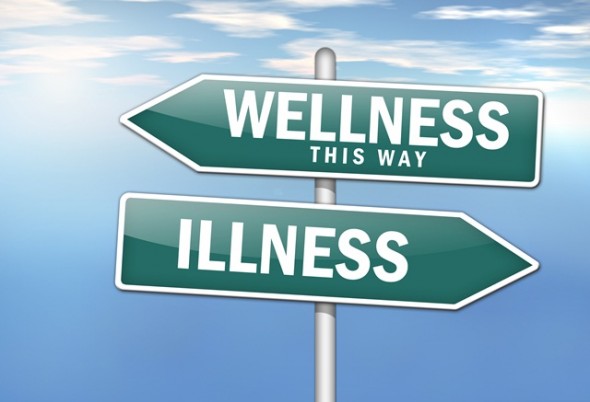Menopause is a time of great change in a woman’s life, as I’ve witnessed from the women in my family. It can affect confidence, moods, energy levels, weight can fluctuate and possibly many other varied physical issues.
Menopause is the end of egg production in women due to progressively lowered amounts of oestrogen. Although the average age for Menopause is approximately 51, some women experience it in their 40’s, some women suffer premature menopause and hence symptoms can start many years before.
Some of the effects of menopause are:
- The laying down of fat deposits predominantly in the waist area, which increases the risk of heart disease.
- A reduction in oestrogen affects cardiovascular function and metabolism, increasing the risk of heart disease, high blood pressure and causes increased sugar levels. The reduction in oestrogen also affects bone density, so individuals are more at risk of osteoporosis and fractures.
- Mood changes and possible depression from differing hormone levels.
Menopause can be managed though regular exercise and maintaining a balanced diet.
Managing Menopause through Exercise
By starting and maintaining a good resistance training program, this can offset the falling oestrogen levels so that there is not as sharp a decline in bone density. A good cardio program helps to maintain good cardiovascular function, reducing the risk of heart disease.
Exercise can help to control the weight gain associated with menopause. It can also help to maintain strength and balance and alleviate, mood swings, depression and stress.
Aerobic exercise should be done at moderate intensity for at least 30 minutes 5 days a week. Resistance training should be done at least twice a week, working the whole body using weights, machines or own body weight.
Don’t forget to include relaxation into your program e.g. Yoga and Tai Chi, They can assist in reducing anxiety and hot flushes.
Please seek advice from your doctor if you are new to exercise or you have heart conditions, dizziness, uncontrollable diabetes, high blood pressure and any new symptoms.
Managing Menopause through Maintaining a Balanced Diet
To help reduce weight gain eat a healthy balanced diet with portion control at regular intervals. Be sure to include lots of fruit and vegetables for their fibre content. They also contain phytoestrogens which act as weak oestrogens in the body, helping to manage the lowered levels.
Include low fat dairy and ensure a good proportion of your vegetables are green and leafy for a calcium rich diet, to combat the changes in bone density. Limit the amount of refined sugar as this contributes to obesity.
Also ensure your diet is low in saturated fat but contains good healthy fats e.g. olive oil, avocados, salmon, fresh tuna.
Menopause will affect every woman and keeping fit and good nutrition will not prevent every potential symptom but it will keep you strong, relieve stress and enable you to manage the changes better. So don’t wait why not starts now putting the strong foundation in place, to help in managing menopause better.
Gillian Stephen is a Fitness and Nutrition coach and also a mother of 2 under 5’s that keep her very busy. Her main areas of focus are weight loss and pre and post natal. The latter certification was brought about by her own pregnancies, where she realised the importance of her own diet and fitness whilst pregnant and post natal, to regain her shape and prior fitness levels, so she now shares it with others.
She supports individuals by helping them put together a strategy for weight loss. It incorporates making better food choices and fitting exercise into their busy schedules such that they lose the weight and keep it off, a lifestyle change.
Website: http://www.fitnessbuster.com
Facebook: http://www.facebook.com/GillianStephenfitness
Twitter: http://twitter.com/Gillian_Stephen

Sylvia Browder is CEO of Specialty Home Services LLC, a Home Improvement Company; a Small Business Consultant at Browder Consulting Group, a startup consultancy firm to help women with startup assistance, marketing, website and graphic design work and other support services. In addition, she has co-authored several published books; publisher of ‘Sylvia Browder’s Blog for Women Entrepreneurs’ a lifestyle blog; and publisher of ShopSpendBlack.com Business Directory & Blog platform created to help consumers find black owned businesses in a searchable format. In her spare time, she enjoys spending time with her husband of 30 years; 5 adult children and 5 grandchildren; church; friends and motorcycle riding.


















As they always say it, whatever is avoided comes so tasty. Ice cream, chocolate, junk foods, fries, burgers, potato chips and shakes are all tempting. You can perhaps be disciplined in indulging in these types of food because they are initially unhealthy to have. Too much of anything sweet or salty is health threatening. Not only will you have a bad effect of junk food on health, you will also largely embrace mood swings, decreased enthusiasm to handle workouts, weight gain and constipation problems if you eat junk foods unstoppably. In lieu of them, you can pick fruits and high-fiber food for good snacks and meals.
Awesome comment. Thanks for sharing.